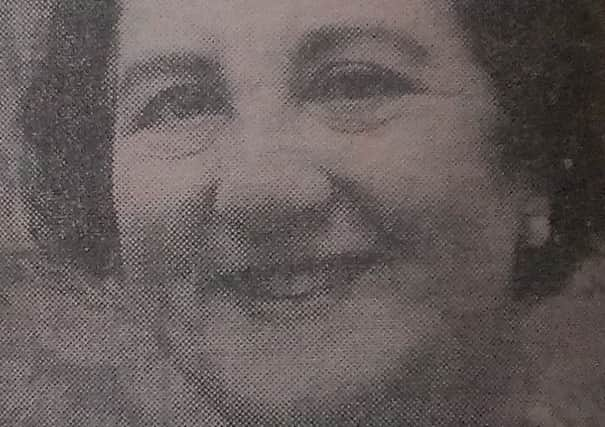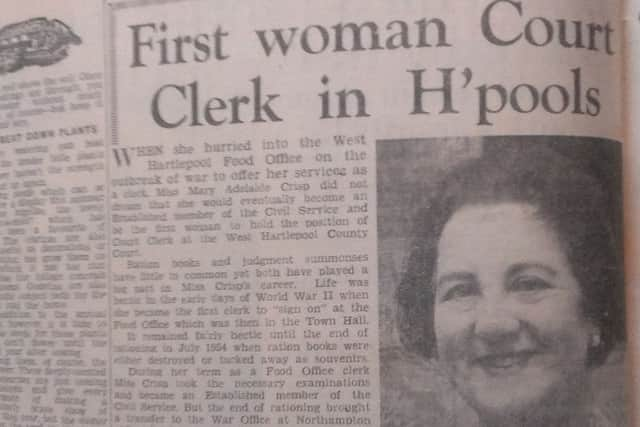The devoted Hartlepool woman who made a difference to our food and our courts


When the Second World War broke out, she rushed into the West Hartlepool Food Office to offer her services.
Little did she know that it would eventually lead to a career in the civil service which would last for decades.


Advertisement
Hide AdAdvertisement
Hide AdMary Adelaide Crisp found life was hectic in the early days of the Second World War.
She had only had one stint of employment up to then.
She had worked in the office of an estate agent and was a big help at home.
But in 1939, when Britain waged war with the enemy, she became the first person in town to sign on as a clerk at the Hartlepool Food Office which was based in the Town Hall.


They were the days of ration books which needed organising for thousands of people. Those books were still part of the British way of life until 1954 when people either destroyed them or kept them as souvenirs.
Advertisement
Hide AdAdvertisement
Hide AdBut from that first day of offering her services, Mary held down a job in the Civil service until she eventually became the first woman to be appointed as court clerk in the West Hartlepool County Court.
In between the two posts, she saw service across the country.
After her early days at the Town Hall, she transferred to the War Office at Northampton once rationing ended - although our report on Mary in 1964 explained: “She would have much preferred to have stayed in her home town.”
She did eventually return to the town but only after what she termed “a battle” which lasted six months.
Advertisement
Hide AdAdvertisement
Hide AdIt saw her being assigned to the staff of the Lord Chancellor which meant she could join the team at the West Hartlepool County Court which consisted of three clerks and a bailiff.
By April 1960, she was appointed court clerk and two years later, Hartlepool was allotted its own separate legal circuit
By 1964, the service was so heavily in demand, there were nine clerks and Mary had served under seven judges.
Every month, she heard hundreds of cases - mostly relating to people in court because they were heavily in debt.
Advertisement
Hide AdAdvertisement
Hide AdMary was just as much an asset at home. Her father was a butcher and she lived at home to help with the books of the business and to help her mother with tasks around the house.
And she was not satisfied with just being a clerk in the Food Office. She also joined the Red Cross.
By the time her work at the Food Office came to a close, both her parents had died and she and her sister had bought a house in Briarhill Gardens in Hartlepool.
Outside of work, she loved Scottish music and was a keen member of the Caledonian Society in Hartlepool.
Who remembers this lady who made a big difference in town?
Email Chris Cordner at [email protected].